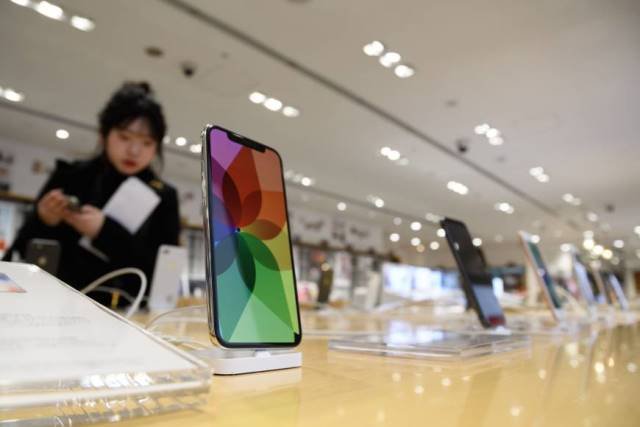Apple and manufacturing partner Foxconn Technology on Monday confirmed that they are employing a significant number of temporary workers for making iPhones for global markets.

Net income of Apple has reached $59.53 billion in its 2018 fiscal year, almost a ten-fold increase from its net income ten years ago. Apple revenue reached $265.6 billion for full-year 2018, up 16 percent from $229.2 billion in 2017.
Apple and Foxconn rebutted allegations of lapses in people management leveled by a non-profit monitor of worker rights.
Apple said it investigated the percentage of temporary workers among the overall workforce and found it “exceeded our standards”. It said it was working with Foxconn to immediately resolve the issue.
Apple did not state whether the excess amounted to a breach of Chinese law. Apple said it discovered interns at a supplier facility had worked overtime at night, violating company policy, and that “this issue has been corrected.” Apple said the interns worked overtime voluntarily and were properly compensated.
Foxconn separately confirmed over-reliance on temporary workers, known internally as dispatch workers.
“We did find evidence that the use of dispatch workers and the number of hours of overtime work carried out by employees, which we have confirmed was always voluntary, was not consistent with company guidelines,” Foxconn said.
China Labor Watch (CLW), a New York City-based watchdog, published a report on Sunday that found more than half of the workforce employed in August at the largest iPhone factory in Zhengzhou, China, were temporary hires — or dispatch workers, which included student interns.
Chinese labor law states that temporary hires cannot exceed 10 percent of the total employed workers. In September, many of those student workers returned to school, which led to a decrease in the number of temporary workers, but it was still greater than what Chinese law stipulates, the advocacy group said.
CLW report
Workers earn a base wage of 2,100 yuan or $295, which is not sufficient to sustain the livelihood for a family living in Zhengzhou city, according to the CLW report.
Workers at the factory put in at least 100 overtime hours a month during peak production seasons, though Chinese labor law states they must not work more than 36 overtime hours a month. Resignations are not approved for regular workers during peak season.
Some dispatch workers failed to receive bonuses promised to them from the dispatch company.
Student employees also work overtime during peak production season even though internship laws prohibit that.
The factory does not provide workers with adequate personal protective equipment and workers do not receive any occupational health and safety training.
The factory does not report work injuries.
Apple, in the latest report, said it conducted more than 44,000 interviews with employees of suppliers to ensure they received training and were aware of proper channels to voice concerns.
“Our recent findings on working conditions at Zhengzhou Foxconn highlights several issues which are in violation of Apple’s own code of conduct,” CLW wrote in its report.
Apple has the responsibility and capacity to make fundamental improvements to the working conditions along its supply chain. Apple is now transferring costs from the trade war through their suppliers to workers and profiting from the exploitation of Chinese workers, the report said.
